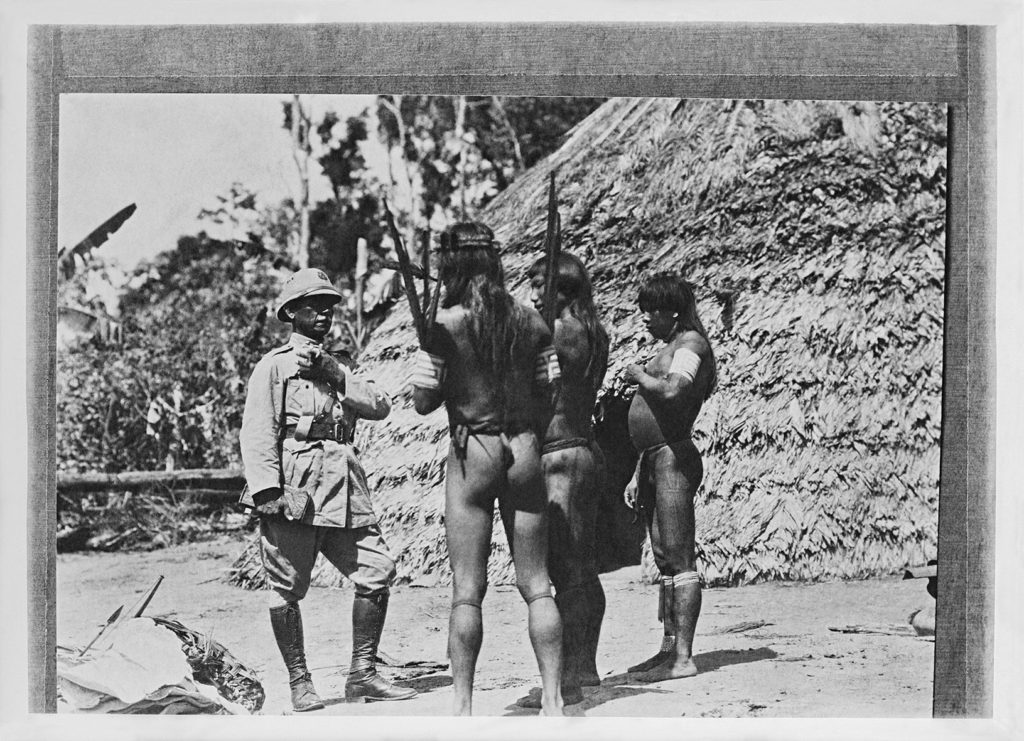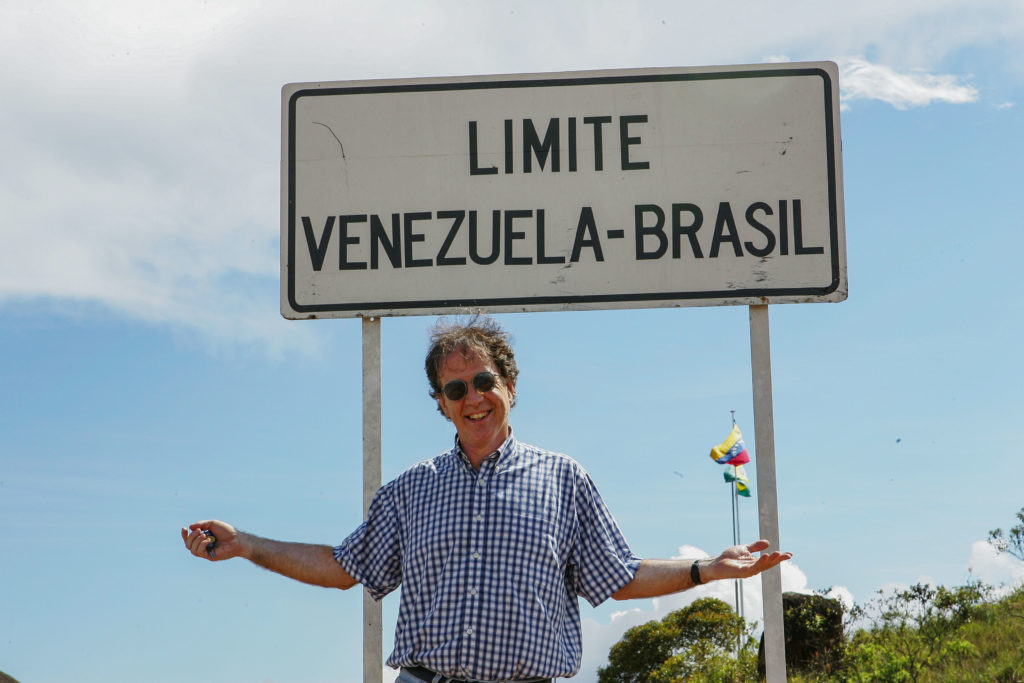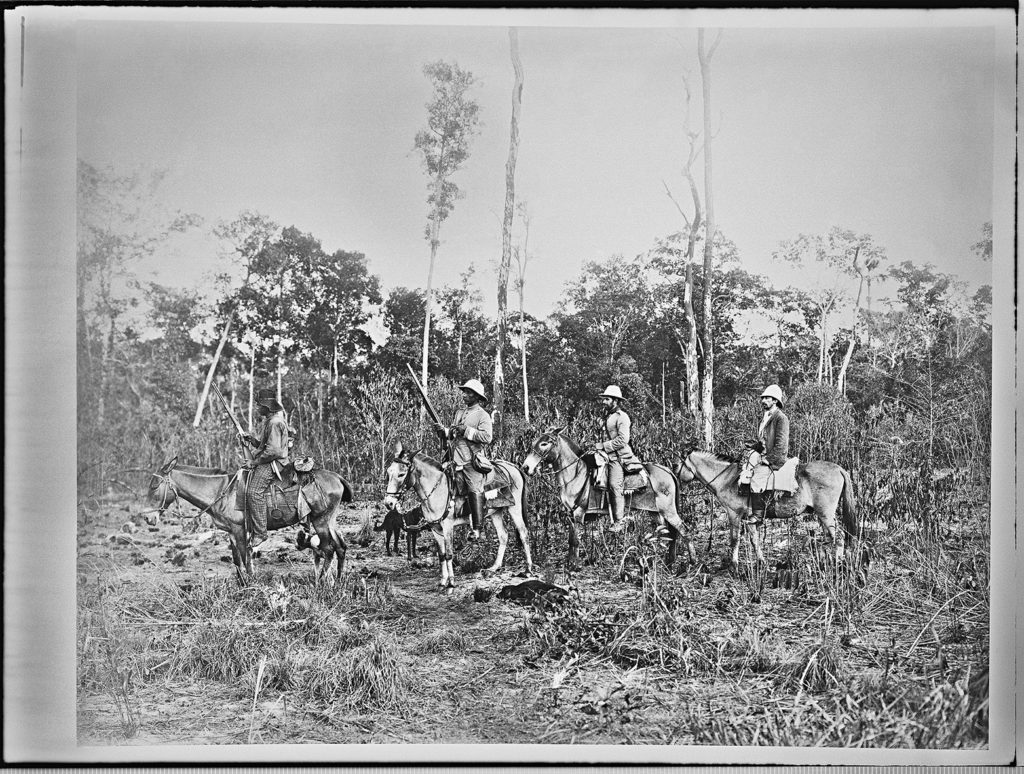By Harold Emert
RIO DE JANEIRO, BRAZIL – Formerly the New York Times Brazil correspondent for a decade, American Larry Rohter may now live in Hoboken, New Jersey, with his Brazilian wife Clotilde Amaral, but a part of him has never left Brazil.

Rohter’s new biography of Brazilian Cândido Rondon (1865-1958) — an explorer, protector of indigenous people, promoter of telegraphy and an intellectual Francophile — has been published in Brazil before coming out next year in the U.S.
“Rondon — Uma Biografia” (R$94.90), translated into Portuguese by Cassio Arantes Leite, is published by the prestigious São Paulo Companhia das Letras.
In an era when numerous military men rule and President Bolsonaro discusses the possible destruction and development of the Amazon, Rohter admits that the book “has a relationship to today’s Brazil, but this is purely coincidental.”
Larry adds: “When I was last in Brazil and Bolsonaro was a presidential candidate, he was saying things which went against Rondon’s values of environmental protection and sustainability in the development of the Amazon, among other issues.”

“Some compare Rondon to U.S. explorers Lewis and Clark. I see him as a kind of Johnny Appleseed. He had a respect and love for indigenous people, whom he believed had the right to be as they wished in their native land, viewing them as sentinels of the borders, stewards of the forest.”
“He knew that one could count on them to live in harmony and take care of nature. When he was in his 80s, he pursued the idea of creating Xingu Park to protect the Indian.”
Although Marechal Rondon was Brazil’s greatest and most courageous explorer of the Amazon, most foreign accounts either omit him or give him second place to his co-explorer in the Amazon, former U.S. President Theodore (TR) Roosevelt.
“TR” participated in an expedition in the Amazon, nearly losing his life as a result, but survived to take the spotlight in a book entitled “River of Destiny” — the river in question is now called “Roosevelt River”.
Larry, a grad student in the USA, first visited Brazil in 1972 as an employee of Rede Globo based in New York City, to cover the national Song Festival. He returned to Brazil in 1976 on vacation with his wife, writing a few articles for the Washington Post, working as a reporter and music critic.
Rohter returned in 1977 as a Washington Post correspondent and was personally awed by the Amazon region, becoming intrigued with the explorations of Rondon during the era before radio, TV, and internet.
After five years covering Brazil for Newsweek, he moved to China as a correspondent for the magazine, before eventually returning to Brazil for the New York Times.
He decided to write a biography about the Brazilian hero, little-known abroad, in 2010 after receiving a book of Rondon’s memoirs from the father of his Carioca godson.

Rohter subsequently researched archives in Rio and in Rondon’s native state of Mato Grosso; the other half of his research was in the USA, writing wherever his research led him.
Queried on what he believes Rondon would have thought of the cyberspace age, Larry observes: “The radio went into use when Rondon was still exploring the Amazon, and he loved it because he was able to keep up with his commanders in Rio. I think he would have been delighted to see inhabitants of remote regions in the Amazon watching Jornal Nacional (TV news) in the boondocks, as I witnessed on my last visit there, in 2015.”
Asked about other books citing Rondon, like Candice Millard’s “River of Doubt” (2005) and Diacon’s “Stringing Together a Nation” (2004), Larry praises both but emphasizes “River”, underplays Rondon’s leadership in favor of “TR” and “Diacon was writing a book in the 1990s, and he didn’t have access to all I had.”
He adds: “There are many archives, files, and folders available in Brazil and the state archives of Mato Grosso. They are often in precarious condition because of the heat, as opposed to the USA, where they are usually stored under pristine conditions. Nevertheless, wherever I sought information on Rondon in Brazil, they warmly welcomed me.”
Rondon died in 1958 in Copacabana, a few months short of celebrating his 93rd birthday. Even at this late age he was actively defending indigenous causes and rejecting an attempted military coup before Juscelino Kubitschek, the founder of Brasília (another Rondon project) became President.

